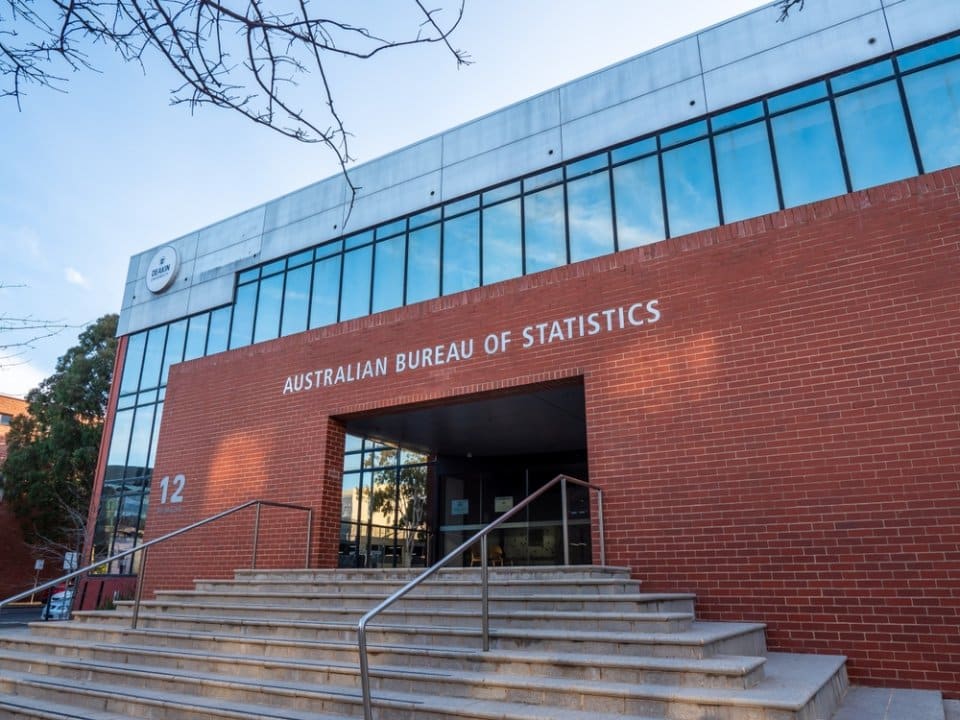Australia’s Economy Outperforms Expectations in June Quarter, Despite Per Capita Decline, ABS Reports

Australia’s economy grew better than expected in the June quarter, driven by increased government spending, although per capita activity shrank for a record sixth consecutive quarter. The Australian Bureau of Statistics (ABS) reported a 1% growth in gross domestic product (GDP) compared to the same period in 2023, exceeding the 0.9% forecast by economists but slightly below the 1.1% reported for the March quarter.
For the 2023-24 financial year, the economy expanded by 1.5%, marking the weakest performance since 1991-92, excluding a 0.3% contraction during the COVID-disrupted 2019-20 year. On a quarterly basis, GDP grew 0.2%, aligning with economists’ expectations and the ABS’s revised growth rate for the March quarter.
Australia’s growing population has masked some of the negative impacts of 13 interest rate hikes by the Reserve Bank of Australia (RBA) over the past 28 months. However, per capita GDP fell by 0.4% in the June quarter, extending a record decline that began in early 2023, according to data dating back to 1973.
Treasurer Jim Chalmers recently stated that higher interest rates were “smashing the economy.” However, RBA Governor Michele Bullock clarified last month that a reduction in the key interest rate was “not aligned” with the central bank’s current stance until inflation more clearly trends toward the 2%-3% target range.
Without the rise in federal, state, and local government spending, growth in the June quarter would have been weaker. This additional demand supported continued strong employment growth but made near-term interest rate cuts less likely. Public demand increased by 1.4%, contributing 0.3 percentage points to quarterly growth, while household spending decreased by 0.2%, subtracting 0.1 percentage points from growth.
Investor focus remained on sharp declines in overseas markets following weak economic data from the US. Meanwhile, the Australian dollar rose modestly after the GDP data was released, climbing back above 67 US cents, and the stock market pared some of its 2% losses during morning trading.
New South Wales was the weakest-performing state, with final demand dropping by 0.4%, while all other states saw growth, including a 0.9% rise in South and Western Australia. Public investment in New South Wales fell by 3.8% for the quarter, diverging from the national trend.
Australia’s economic growth rate was lower than that of other major economies, such as the US, which grew at an annual rate of 3.1% in the June quarter. In contrast, the Eurozone’s growth rate was 0.6%, the UK’s 0.9%, and Japan’s contracted by 0.8%.
Katherine Keenan, head of national accounts at ABS, noted that consumer spending had been boosted during the March quarter by events like concerts, but this trend reversed in the June quarter. “The strongest detractor from growth was transport services, particularly reduced air travel. This was the first fall for this series since the September 2021 quarter,” she explained.
Despite this, end-of-year sales boosted spending on furnishings and household equipment by 4%, while consumers spent 1% less on food and other groceries. Chalmers acknowledged the pressure on consumers, stating, “This is precisely why we are rolling out the substantial cost of living help but in the most responsible way.”
Total investment fell for the third consecutive quarter, dropping by 0.1% in the June quarter. Private sector spending on new machinery and equipment decreased by 1.6%, partially offset by a 3.9% rise in ownership transfer costs, according to the ABS.
| GDP (nominal) | Capital | Head of State | Head of Government | GDP (nominal) per capita | GDP (PPP) | GDP (PPP) | GDP (PPP) per capita |
|---|---|---|---|---|---|---|---|
| Australia | Canberra | Sue Lines | Anthony Albanese | 1.687.713 | 63.487 | 1.780.000 | 64.675 |
Have you read?
Richest Billionaire Investors.
Billionaire Winners.
Billionaire Losers.
Best Business Schools.
Best Hotel Schools.
Bring the best of the CEOWORLD magazine's global journalism to audiences in the United States and around the world. - Add CEOWORLD magazine to your Google News feed.
Follow CEOWORLD magazine headlines on: Google News, LinkedIn, Twitter, and Facebook.
Copyright 2025 The CEOWORLD magazine. All rights reserved. This material (and any extract from it) must not be copied, redistributed or placed on any website, without CEOWORLD magazine' prior written consent. For media queries, please contact: info@ceoworld.biz








